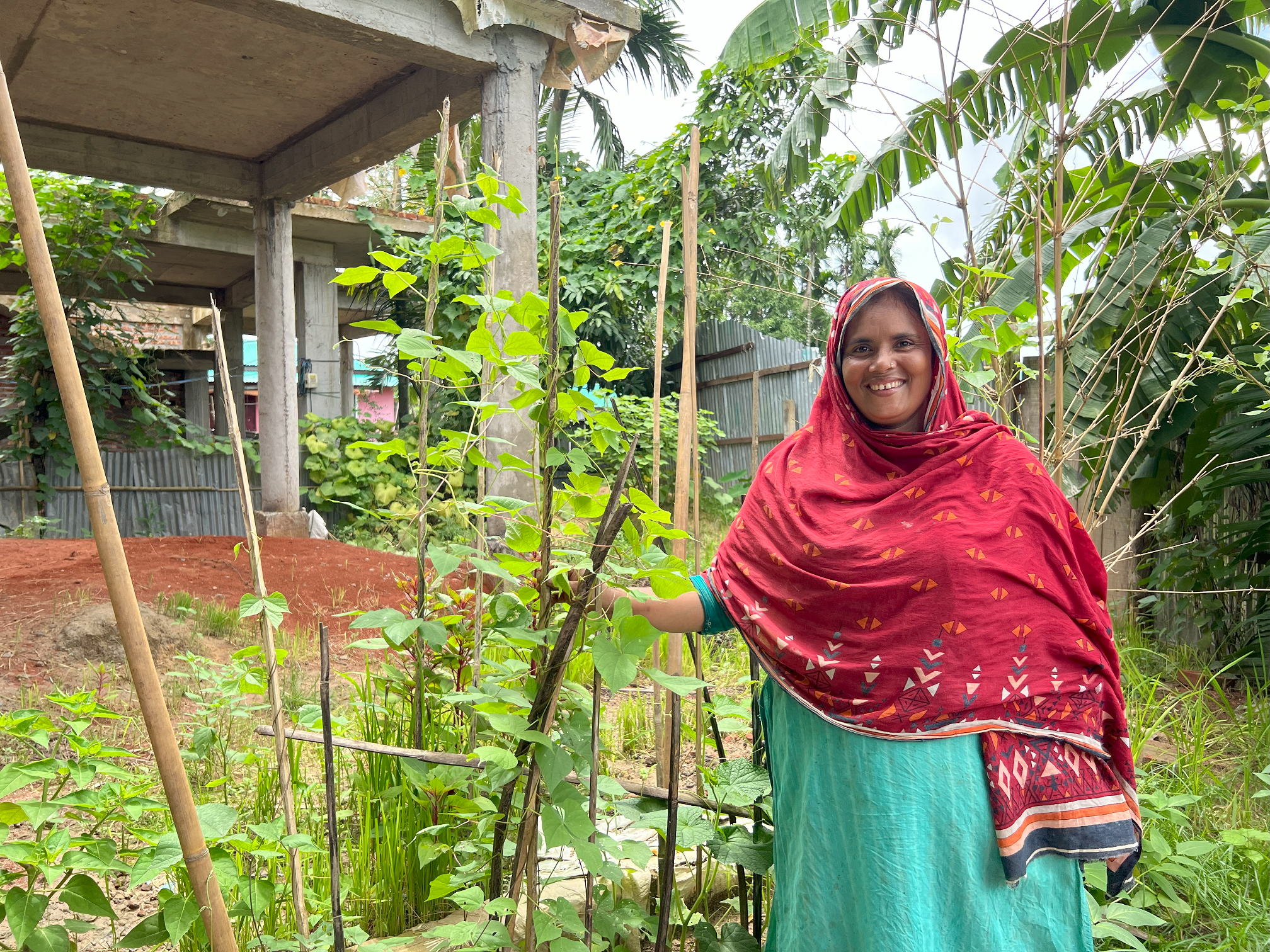
Host Community Women’s Livelihoods Project
-
The Rohingya refugee crisis has profoundly affected the livelihoods of the host community living in Ukhiya, Cox’s Bazar. An area with existing low socio-economic development, the influx of nearly one million refugees has severely impacted the food security and income-generating activities of the local Bangladeshi community. Host community women, in particular, lack employment and empowerment opportunities.
In May 2023, Maiya School expanded our programming into a livelihoods project for Bangladeshi women in the host community. We’re working with local women to train them in agricultural, food preparation, and sewing skills, along with providing resources so they can grow their own food and generate income to support themselves and their families. The aim of the project is to empower local women by equipping them with valuable skills and knowledge that can enhance their self-reliance.
-
Partnership with local women’s associations
Maiya School has partnered with two local women’s organisations in Rajapalong and Taipalong unions in Ukhiya, Cox’s Bazar.
-
Capacity building
Through a participatory rural appraisal, local women have identified the skills they need in order to establish or strengthen their livelihoods, along with their existing capabilities and strengths. The predominant skills the Ukhiya community wanted to learn were homestead gardening, fertiliser and compost making, pickling, and sewing.
-

Homestead gardening
Maiya School is giving women in the Ukhiya community training and resources to start their own homestead garden. The purpose is to grow enough vegetables to meet the nutritional needs of their families. If there is remaining produce, they will be able to sell it in the market to make extra money to support their families.
The homestead gardening project involves teaching 20 women across Rajapalong and Taipalong the skills of how to grow vegetables in a small area at their homes. They are learning skills in vertical gardening to maximise the land they have access to, growing climbing vegetables like pumpkin, lau, cucumber, bitter gourd, and okra.
The women have been given materials to help them start their own vegetable garden, including fertiliser, seeds, and netting.
-

Compost training
Five members from each women’s association have also been given training on how to make fertiliser and compost. The aim of the training was to equip members with the necessary knowledge and skills related to organic fertiliser production, as well as the proper usage and quality standards of both organic and chemical fertilisers.
In addition, two participants have been given additional support to establish their own homestead, including skill building and extra material support in the form of bamboo, which will help them to build agricultural structures.
By receiving the training and materials, the women are empowered to engage in gardening and farming activities that can enhance their own livelihoods and contribute to food security in the wider community.
-

Pickling
Across two training sessions, 40 women’s association members were taught how to make various pickled goods - a very popular condiment in the local community.
The training focused on pickle making skills, specifically mango, tamarind, hog-plum, and olives. The participants were provided with detailed instructions and also engaged in a practical exercise.
In addition, one host community woman has received support in selling pickled goods in the marketplace. This support includes the provision of necessary resources and assistance to enable her to effectively market and sell her pickled products in the local marketplace, generating an income to support her livelihood.
-

Sewing
Members of the two women’s associations were trained by three expert seamstresses. Participants learned fundamental sewing skills and can now mend their own clothes and sew basic items with a sewing machine.
We hope in the future the women’s skills can be further built upon, so they can generate a livelihood through becoming paid seamstresses in their neighbourhoods.
-
Future skill building
We’re already starting to see the difference in the lives of the host community women who have participated in our project. Just a few weeks after receiving their training and micro-gardening kits, our Ukhiya participants’ gardens are flourishing, growing vegetables to feed their families.
The next stage of our Host Community Women’s Livelihoods Project is to assess how the trainings and resources have impacted participants, and what additional skills are needed to further enhance their livelihood opportunities. This might be learning additional knowledge in the area of interest, such as sewing skills, or building financial literacy to increase the ability to sell goods in the marketplace or effectively manage their household.
Please consider helping Bangladeshi women financially support themselves and their families by donating below.

